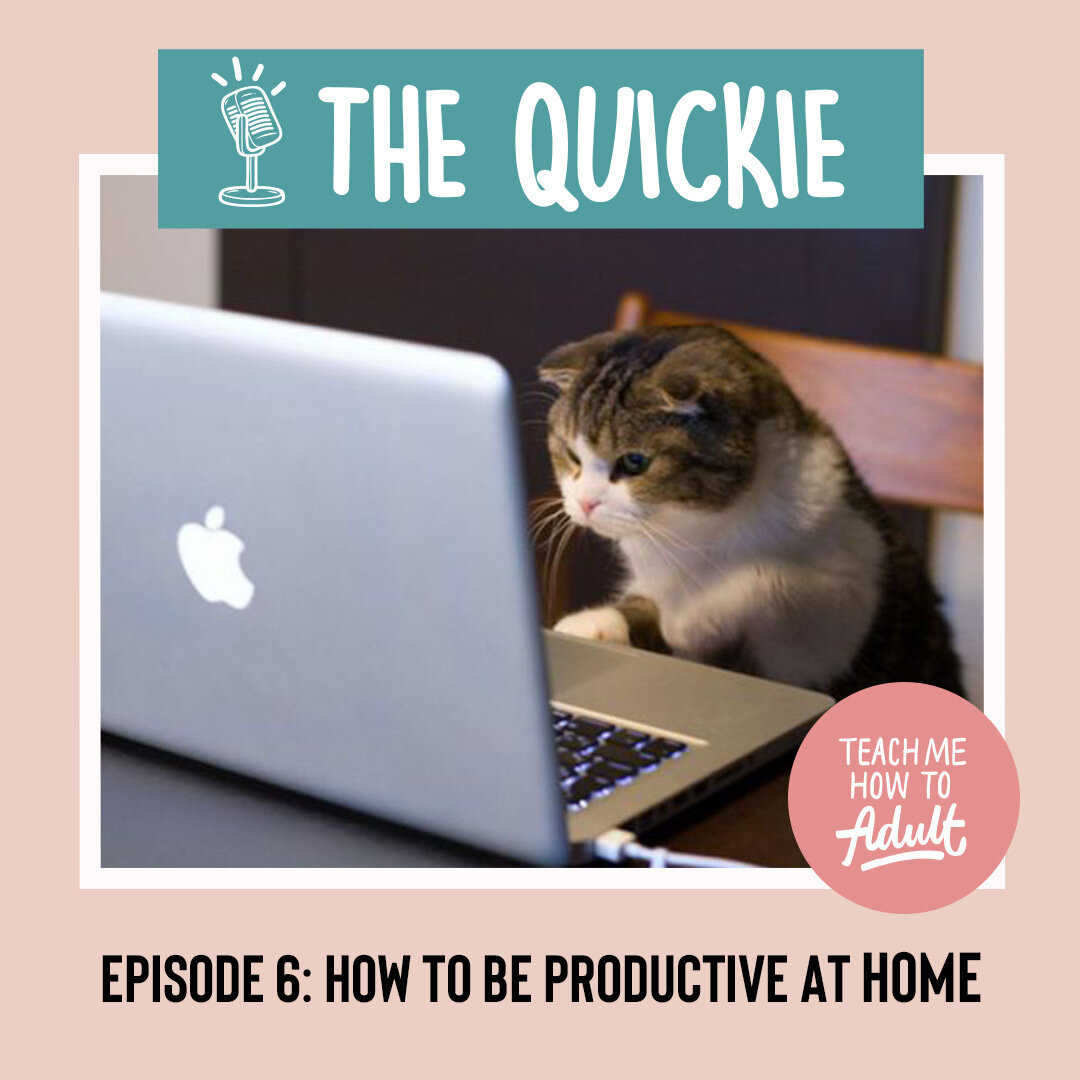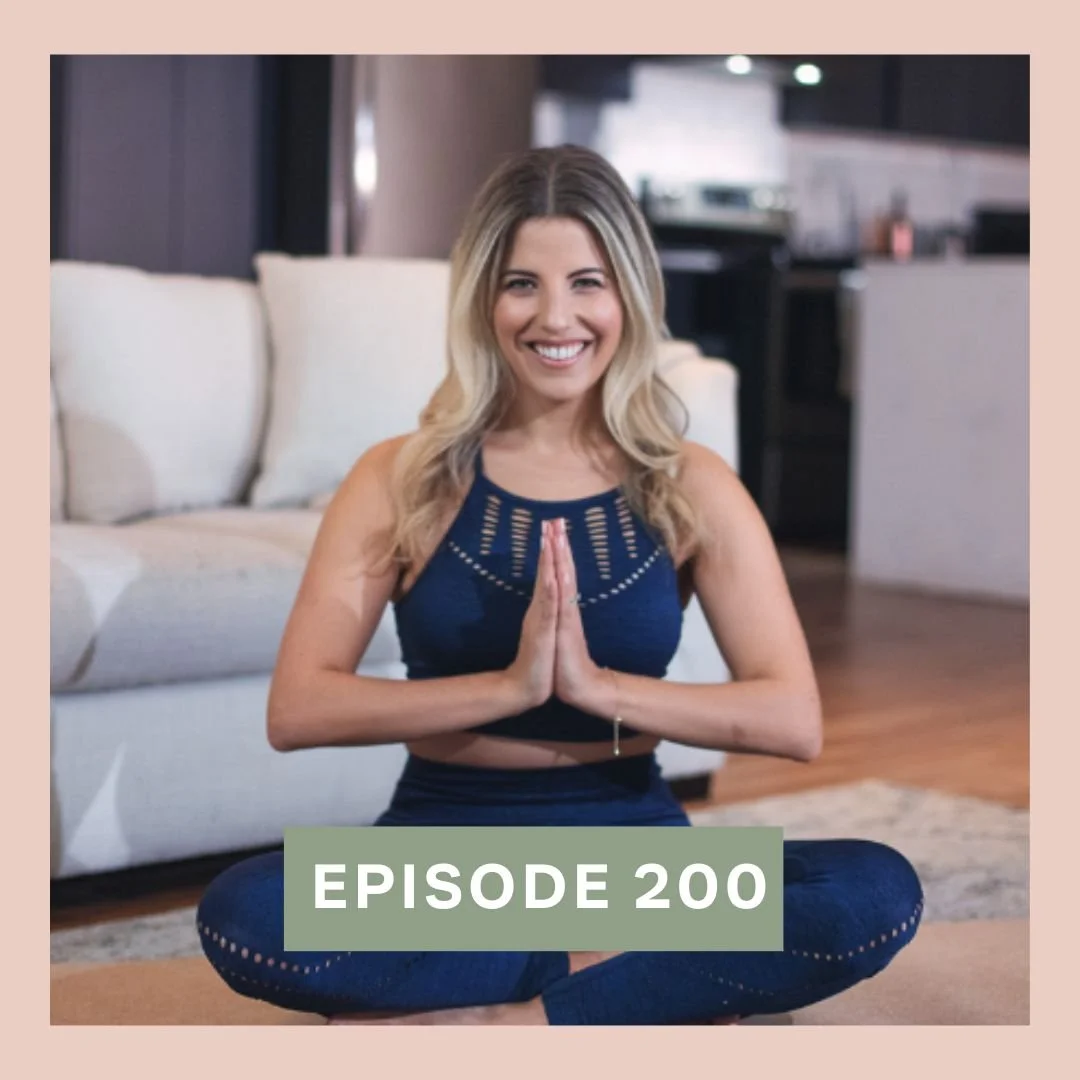Episode 06: How To Be More Productive While You’re Working From Home
Most of us are figuring out how to work from home right now as we all practice social distancing and self-isolation due to the Coronavirus. And we know it ain’t easy. So we did some research on some of the most effective and easy productivity hacks that experts swear by. For us, method #2 has been a serious game changer, so keep reading (and listen below!) so you can learn how to beat procrastination and cross off all the things on that never-ending to-do list (yes, that includes Tiger King) all from the comfort of your couch.
Method #1: The Pomodoro Method
This technique was developed in the early 1990s by Italian entrepreneur Francesco Cirillo when he was studying in university and used a kitchen timer in the shape of a tomato to time out his study sessions. You don’t have to use an actual tomato timer to do this method, any timer will do, but we’re kind of obsessed with this Pomodoro cutie on Amazon!
How does it work?
This method can be broken down into three easy steps:
First, you need to break up your tasks into 25 minute increments, called Pomodoros.
Once you’ve finished your Pomodoro you’re encouraged to take a short five minute break. Exercise, make a coffee, or call a friend, just make sure to give your brain a break and do something that isn’t work-related.
Once you’ve done a total of 4 Pomodoros you can take a longer break (15-20 minutes).
Here’s the catch - if you didn’t finish your task during the Pomodoro, Cirillo says you have to move on and start a new timer for that same task later on. If you do finish your task during the Pomodoro, he suggests staying on that task and reviewing your work, or learning something new about the subject.
When should you use this method?
This method is perfect for students who have to memorize a ton of content, or anyone who is trying to learn a new skill because it forces you to get laser focused on one topic at a time.
Method #2: Timeboxing
We SWEAR by this method. No seriously, this podcast would not have been possible without timeboxing. It’s honestly like speed dating for productivity.
How does it work?
It’s simple. All you need to do is write down your to-do list and allocate a fixed amount of time to each activity. If you don’t finish the task within that fixed time frame, you have to move on to the next task—no matter what.
It’s helped us get realistic about how much we can actually accomplish in a given time, and it made us stop over-scheduling our days or setting unrealistic expectations on how much work we can actually get done in a day.
When should you use this method?
This is great for anyone who has a bunch of annoying mini tasks to do (i.e. paying bills, responding to emails, cleaning out your inbox, submitting expense reports) because it allows you to block off a set amount of time within your day to complete these tasks.
It is also a great method for anyone who, like us, is a perfectionist, because it forces you to move on from a task and accomplish more in your day.
When you get realistic about how long each activity on your to-do list actually takes, you start to realize you can probably only complete half of those items really well. So make sure to check in after timeboxing and reflect on how much you actually got done and if you need to approach your tasks differently next time.
We swear by this method and found it helpful to use a timer so that we know when to stop. We LOVE this time cube !
Method #3: Eat That Frog Method
Don’t worry, no frogs were harmed in the making of this method. The Eat That Frog method was developed by CEO and author Brian Tracy in his book, Eat that Frog: 21 Great Ways To Stop Procrastinating and Get More Done in Less Time.
He got the term “eat that frog” from Mark Twain who once famously said, “If you eat a live frog first thing in the morning nothing worse will happen to you the rest of the day”.
Ew...how does it work?
This method is all about prioritizing the harder, more important stuff first, when you have the most energy, so that you’ll be able to power through all of the smaller, easier tasks later on in the day.
When should you use this method?
This method is perfect for people who procrastinate because instead of feeling overwhelmed by your to-do list, it helps you focus on the most important stuff that needs to get done that day.
Usually these are the things that we put off because they are the most time consuming or the most difficult. But if you do the hard shit first the rest of your day will be a breeze.
We know it can be hard working from home, so we hope that these methods help you feel a little bit more confident to get shit done!
Leave us a comment below or DM us on Instagram if you try any of these methods, or if you have any other productivity hacks that you swear by!
If you have a topic you’d like us to cover or a guest you want us to interview, comment or DM us on Instagram:
See you next week! xo































